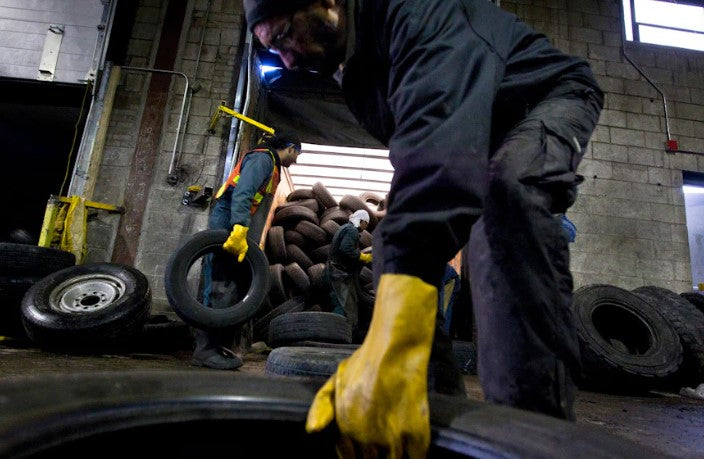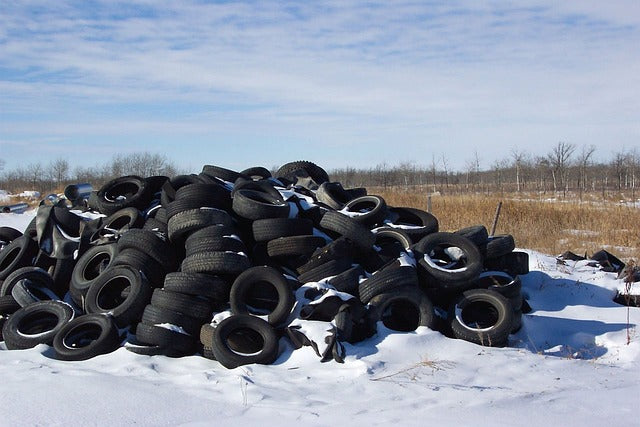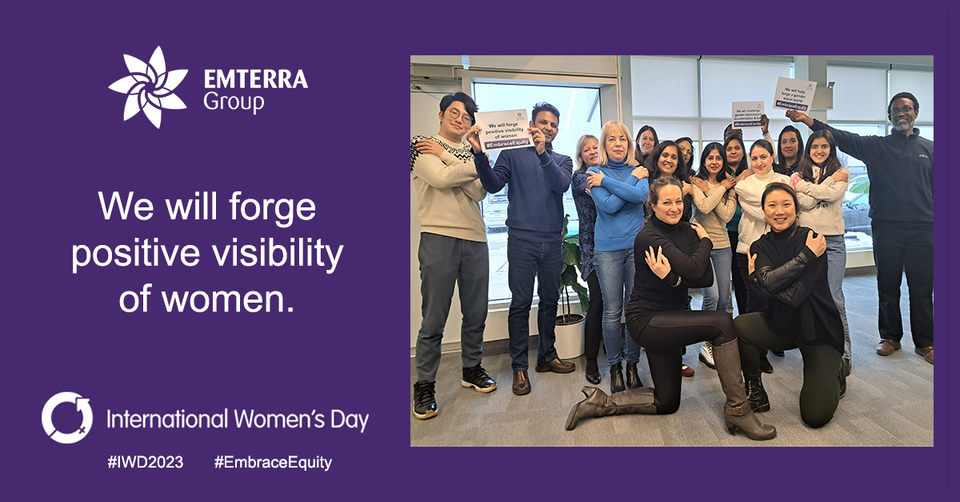
Burlington community members get up close view of why ‘recycling properly’ has to be a community goal
Community is one of Emterra Group’s corporate values and keys to success. In early April, Emterra staff welcomed a group of nine Burlington, Ontario community members—including a member of Burlington city council, business owners and residents—to tour its Burlington single stream recycling material recovery facility (MRF). The goal of our tour was to educate visitors on the importance of recycling and the adverse effects of ‘wish-cycling,’ an industry term describing items like telephones, plastic tubs and extension cords that are put in recycling bins in hopes that they can, just maybe, be recycled. But as we all know, that’s one of the worst decisions home owners can make about their recycling.
With the problems that ‘wish-cycling’ creates in full view at the MRF, participants quickly learned how the common practice impacts the efficient and effective operation of a recycling facility. ‘Wish-cycling’ increases both the operational costs and ‘contaminates’ the materials that can actually be recycled. Contamination refers to the items in bales of recyclables that don’t belong, like plastic toys in bales of plastic bottles. The percentage of contamination can potentially and significantly decrease the value of recyclable commodities.
Thanks to Emterra’s partnership with BurlingtonGreen, which coordinated the tour, guests were shown the pathway recyclables take once they are collected—whether from the curb or from a commercial business—and brought to a MRF for processing from waste to a commodity. Burlington’s single stream material recovery facility accepts mixed recyclables which means the consumer is permitted to put all their paper and container recyclables together in one bin for collection.
At the MRF, these materials are placed on a conveyor belt which passes them through a series of machines, some of which are leading edge technology, which sort and separate the collected material into distinct material types – paper, corrugated cardboard, aluminum cans, steel cans and various types of plastics. The final step is to bale the material making it ready for market.
As Janice Rendflesh, Emterra’s Corporate Communications Coordinator, explains, “The facility tour allowed us to show members of the Burlington community that the recycling industry is much more than collections and hauling from the curb. The process is large in scale and requires advanced engineering and technology to keep material flowing. All of this is geared toward producing products that align with the needs of manufacturers in a circular economy.”



